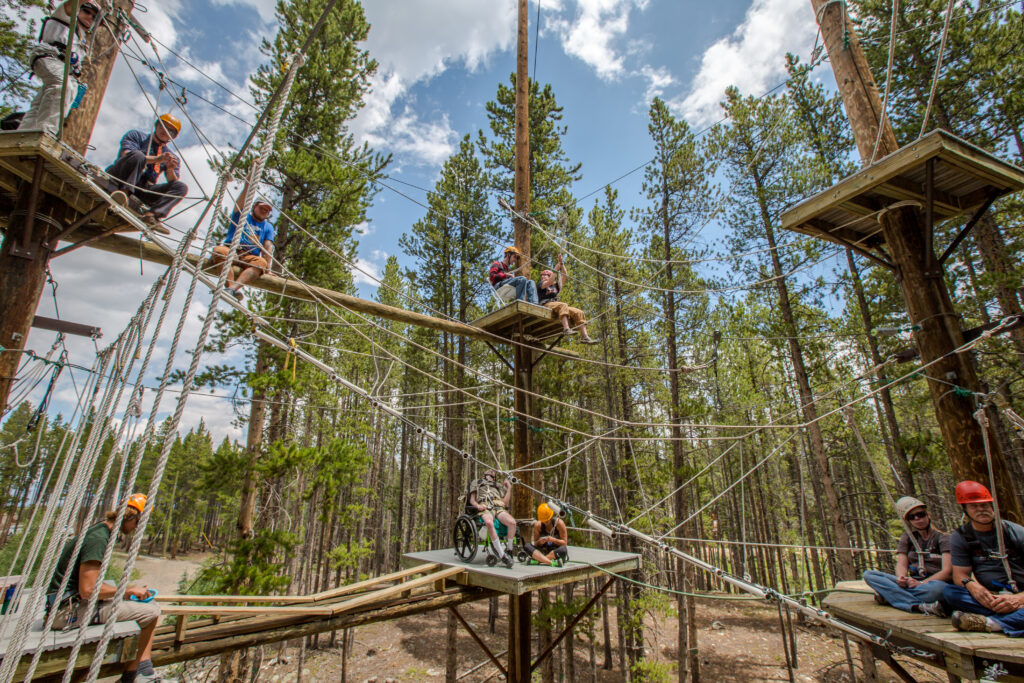
How often are you presented with something your mind immediately tells you is out of your reach? Not just out of your comfort zone, but just not “possible.” We all must face the things we find difficult or frightening from time to time. People with a spinal cord injury (SCI) are faced with many challenges that appear insurmountable—sometimes even activities enjoyed with ease before their injury. Using our mission and values as a guide, the Neilsen Foundation aligns with grantee partners that are encouraging the SCI community to push through perceived physical and mental limitations and embrace a newfound talent or passion waiting to be developed.
For instance, the idea of lifting daredevils with SCI into the treetops of Colorado to experience one of the only fully wheelchair-accessible high ropes courses in the world would have seemed impossible some years ago. Now, it’s a summer activity led by creative outdoor enthusiasts. Advances in assistive equipment and technology also help athletic teams compete at the highest level, while enabling grantee partners to lead hiking expeditions and climbing and wilderness programs. Feedback we have received suggests these types of activities offer so much more impact than just trying something new. They can “help reduce anxiety and boost wellness,” while giving individuals with SCI “a sense of community, joy, connectedness, and self-accomplishment.”
Extreme sports and mental toughness may be all the rage, but not everyone is up for that kind of thing. When your physical goals don’t include athletics and adventure, rediscovering the ability to paint or enjoying nature through photography might do wonders to improve your outlook. Accessible arts programs are thriving from Vermont to Texas, and opportunities to expand a love for photography have been supported from California to British Columbia.
Do you still think the “impossible” is so far out of reach?
Resources like peer support can help individuals newly injured overcome barriers that seem overwhelming by envisioning a future with potential rather than limitations. This can start with meeting a friendly stranger in the hospital—someone who has experienced life as you are about to, who can advise you about things you might encounter during your rehabilitation and beyond. Their understanding, guidance, and encouragement can help a person see how to make the most out of life. These peer mentors can introduce individuals with SCI to professional resources that set them on a new course with milestones that lead to greater independence. For some, getting behind the wheel of a car can be freeing, while others might want to get back to an activity they once loved, or even become an advocate or a mentor to others.
At the Neilsen Foundation, we meet so many people who have found a true purpose and a healthy new outlook on life following injury. We are moved by people who push past perceived limitations and encourage others to do the same. Every one of us should follow their example and test what we think are our limits—even for a minute. Then, next time, you might find yourself doing it for two minutes.